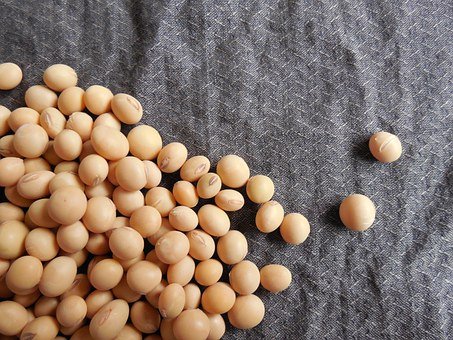Negative Facts About Soy & Your Health
A type of legume native to Asia, soy belongs to the pea family of plant foods. People have incorporated soy products in their diets for about 5,000 years, making the legume one of the most enduring and widespread health foods in the world. While consuming soy usually causes no ill effects, complications are possible, depending on your eating habits and current health.
FEATURES OF SOY
Soy provides various nutritious compounds, ranging from antioxidants, fiber and healthy omega-3 fats to nutrients such as iron, zinc and B vitamins. Additionally, unlike most legumes and plants, soy contains a large amount of protein. It lacks the cholesterol and high levels of saturated fat common in animal sources of protein, however. This trait makes soy a beneficial protein for vegetarians and meat-eaters alike. Consuming soy can help improve the health of your gastrointestinal and cardiovascular systems due to its fiber content and minimal saturated fat, for instance.
SOY ALLERGY
Some individuals cannot tolerate soy, despite its many nutritional advantages. People who experience an allergic reaction after consuming soy have a type of food allergy called a soy allergy. The condition can strike individuals of any age, although it affects children and babies most often, and an allergic reaction to other kinds of legumes can accompany it. Problems eating soy can also develop after you have already consumed soy in the past without difficulty. Signs of a soy allergy vary in severity and they include diarrhea, hives, itching, nausea and stomach pain. Preventing such reactions requires avoiding all foods with soy ingredients.
DIETARY SUPPLEMENTS
Dietary soy consists of whole soybeans, or edamame, and foods containing soy. Manufacturers produce dietary supplements, as well, made with concentrated isoflavones, an integral component of soy. Increasing your intake of dietary soy benefits your health, but research indicates taking isoflavone supplements has no effect, according to the Cleveland Clinic. Moreover, individuals with a soy allergy should not eat soy-based foods or take isoflavone supplements because both can trigger a negative reaction. Medical specialists have not established the safety of isoflavone supplements for use in children, either. Thus, parents should avoid feeding their children isoflavone supplements, too, explains the University of Maryland Medical Center.
MEDICAL CONDITIONS
Consuming soy can worsen or cause certain medical conditions. For example, soy contains a compound named purine, which can aggravate the inflammatory joint disease called gout in large amounts. People diagnosed with gout should restrict their soy intake to avoid unnecessary complications. Some studies indicate that eating soy after you develop breast cancer can encourage the cancer to grow, states the University of Maryland Medical Center. Individuals with other hormone-related medical conditions -- such as endometriosis and ovarian cancer, for instance -- may experience health setbacks after using soy, as well. Soy consumption may also cause hypothyroidism, or poor thyroid functioning, due to iodine deficiency in babies fed a diet with inadequate iodine.
REFERENCES
- https://my.clevelandclinic.org/health/articles/soy-allergy
- https://www.webmd.com/cholesterol-management/features/soy-and-cholesterol
- http://www.gfiamericas.com/Home/HealthyNews.asp
- https://extension.umd.edu/grain/soybean
- https://www.mayoclinic.org/diseases-conditions/soy-allergy/symptoms-causes/syc-20377802

Thank you for your wonderful sharing. Great post! This post has received a 50 % upvote